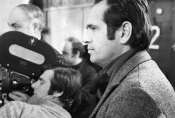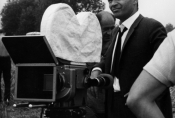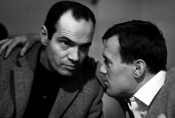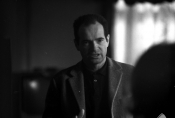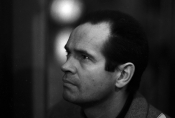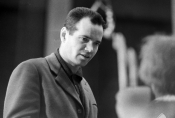Sylwester Chęciński
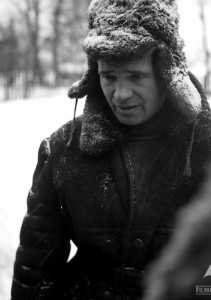
Film, theatre and television director and screenwriter. He was born on May 21, 1930 in Susiec near Tomaszów Lubelski. A graduate of the Directing Department of the State Film School in Łódź (1956). After several years working as an assistant director – his credits include Zimowy zmiarzch/Winter Dusk (1956) and Spotkania/Encounters (1957) by Stanisław Lenartowicz, Lotna (1959) by Andrzej Wajda and Powrót/The Return (1960) by Jerzy Passendorfer – he made his directorial debut with a screen adaptation of the popular book by Antonina Domańska Historia żółtej ciżemki/Story of the Golden Boot (1961), which earned him a Silver Medal at the Venice Film Festival(1962) and the Platinum Goats Award in Poznan (2011). His subsequent films were addressed to the adult viewer: in Agnieszka 46 (1964), set just after the war, he confronted two different attitudes to life, and his Katastrofa/Crash (1965), in spite of the socialist realist formula, is an interesting take on the issue of moral responsibility for one’s actions.
He rose to fame with his comedy trilogy based on a script by Andrzej Mularczyk – Sami swoi/Our Folks (1967, Golden Grape Award in Łagów, 1976), Nie ma mocnych/No Can Do (1974 Golden Grape Award in Łagów), Kochaj albo rzuć/ Love It Or Leave It (1977; Award in Gdańsk) – an epic story of two feuding families who came to the “Reclaimed Lands” in the west of Poland after the war having left their village east of the Bug River. He joined forces with Mularczyk once again to make an interesting television series Droga/The Road (1973), with Wieslaw Gołas as a bus driver, who, although a bit of a loser, is sensitive to other people’s misery and willingly to help anyone who needs it. He returned to comedy with Rozmowy kontrolowane/Calls Controlled set in Poland during martial law (1991, Silver Grape award in Łagów), a perverse story (written by and starring Stanisław Tym) about a Communist apparatchik who is mistaken for a hero of the underground Solidarity movement. Chęciński specialised in genre cinema: Tylko umarły odpowie/Only the Dead Shall Answer (1969) is a typical thriller, and Wielki Szu/Big Shar (1982, Golden Duck) – a daring tale of an ageing con-artist (“sharp”) and his young disciple – is an action drama of the highest calibre.
Good scripts, brilliant casting choices, and excellent filmmaking skills – this is what characterises Sylwester Chęciński’s cinema. It is no wonder that many of his films – from Historia żółtej ciżemki/Story of the Golden Boot, the on-screen debut of Marek Kondrat, through the saga of the Karguls and the Pawlaks with Władysław Hańcza and Wacław Kowalski as the patriarchs of two warring clans, to Wielki Szu/Big Shar with Jan Nowicki in the title role – were the greatest box office hits in the history of Polish cinema.
In 1976–1980, he served as deputy artistic director of the "Iluzjon" Film Studio, and in 1988-1991, he was deputy head of the "Kadr" Film Studio.
He was awarded the Officer's Cross of the Order of Polonia Restituta (1983).
Jerzy Armata
